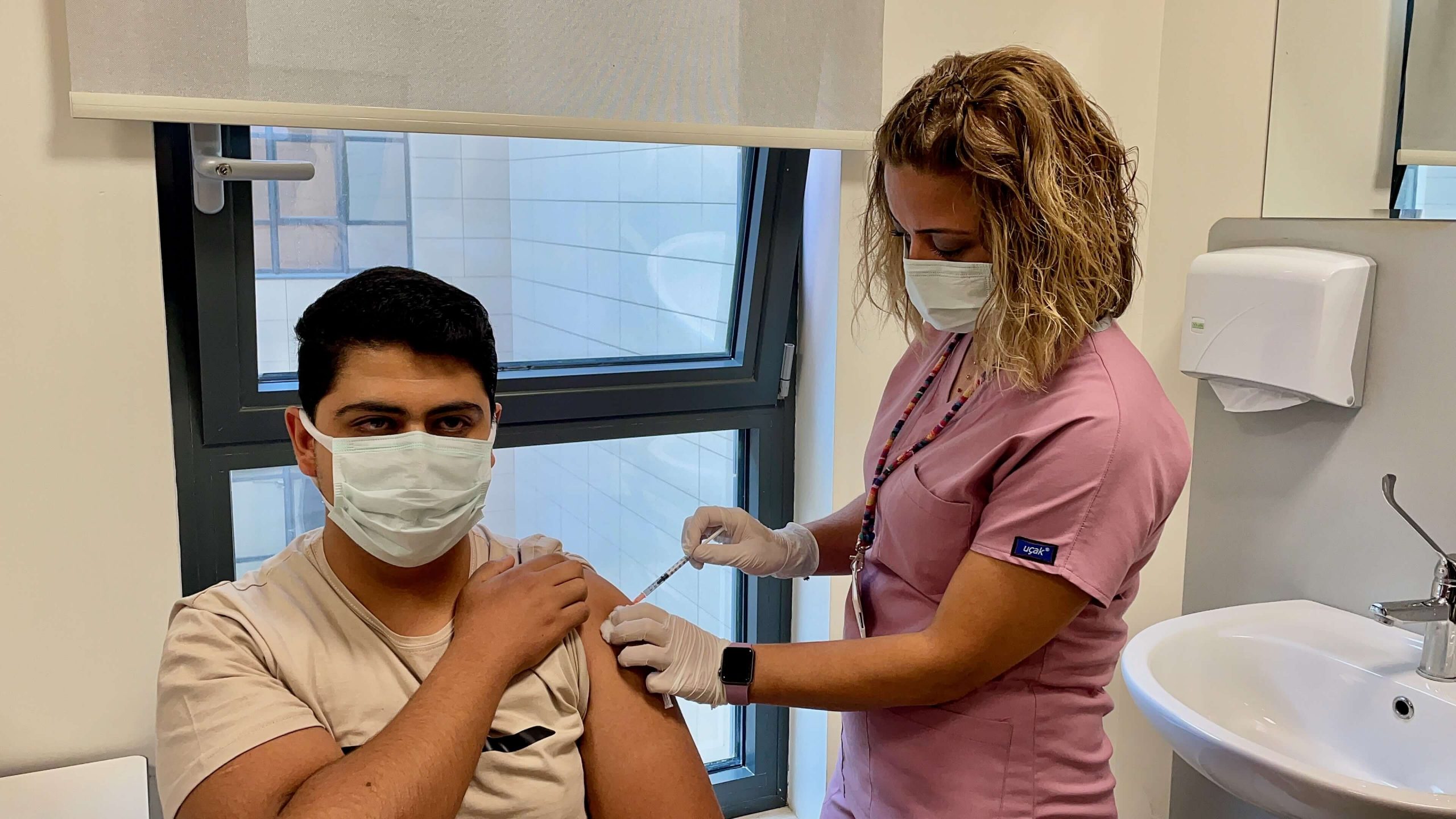As Turkey’s vaccination program continues its steady course, the country looks to add its locally developed jab Turkovac to the arsenal in the fight against the coronavirus pandemic.
Turkovac, which has been submitted for emergency authorization, is still in Phase 3 trials but results are promising, according to researchers. A hospital in the western province of Izmir reported no side effects nor coronavirus infection after inoculation among 74 volunteers.
Tepecik Training and Research Hospital in the province is among the five hospitals and centers where the vaccine is being tested as it counts down to final approval and mass production next year. Professor Şükran Köse, the coordinator of the trial at the hospital, said the staff was conducting different trials both with Turkovac and CoronaVac, a vaccine by China’s Sinovac that shares the same inactive features as the local jab. CoronaVac is one of the two vaccines currently being offered to the public, along with the Pfizer-BioNTech jab. Authorities want to offer Turkovac as another option to the unvaccinated and those in need of booster shots.
Since Oct. 11, 17 people who had not received any of the COVID-19 jabs were administered a dose of the Turkovac vaccine. Fifty-seven participants who had received two doses of Coronavac were given the Turkovac as a booster shot. None of the volunteers showed any serious side effects, Köse, who also heads the Association for Prevention of Infectious Diseases, told Anadolu Agency (AA) on Friday. None of the participants had contracted the disease so far, she added, noting that the results of their study would be soon published in detail.
Köse called upon more volunteers to join the trials, so “we can help defeat this global pandemic,” noting that more health data with more volunteers would speed up the vaccine’s development and approval process.
Researchers aim to reach 3,000 volunteers. So far, around 2,000 people have volunteered for the trials, according to November figures.

